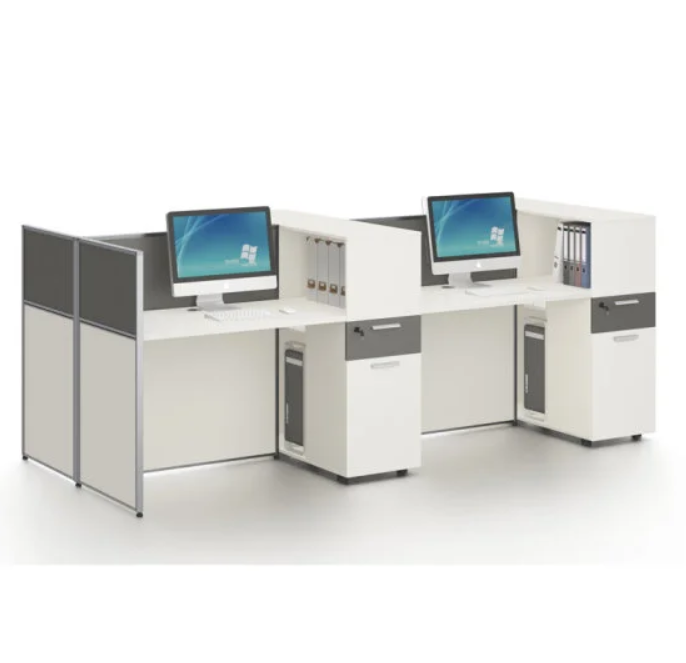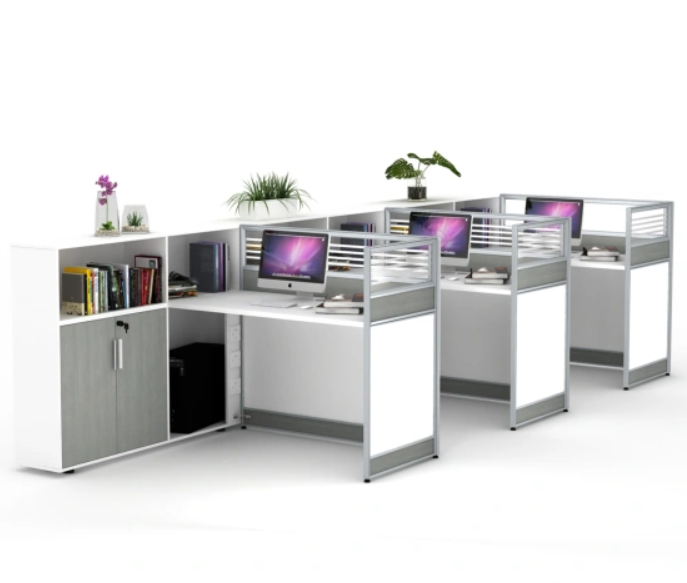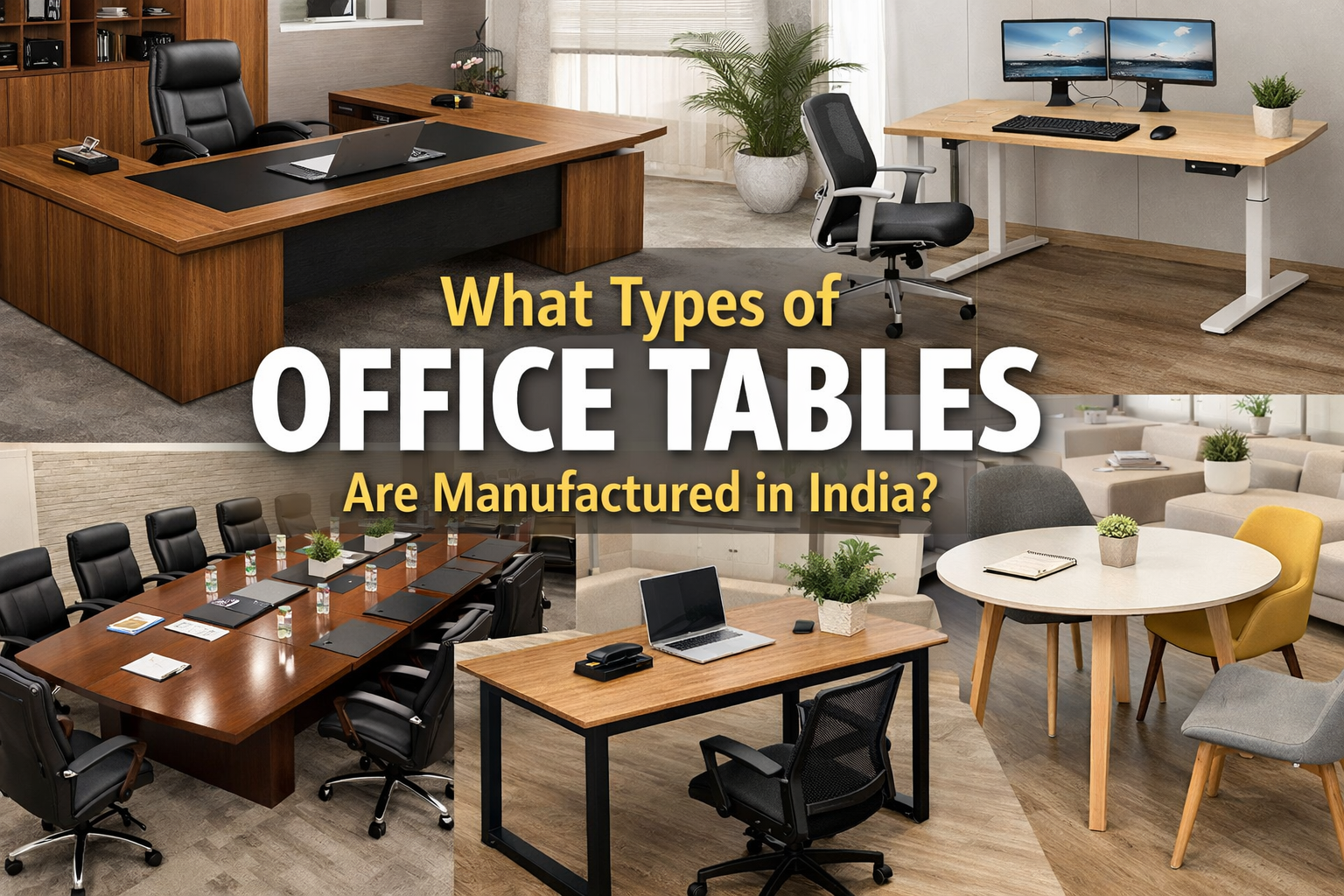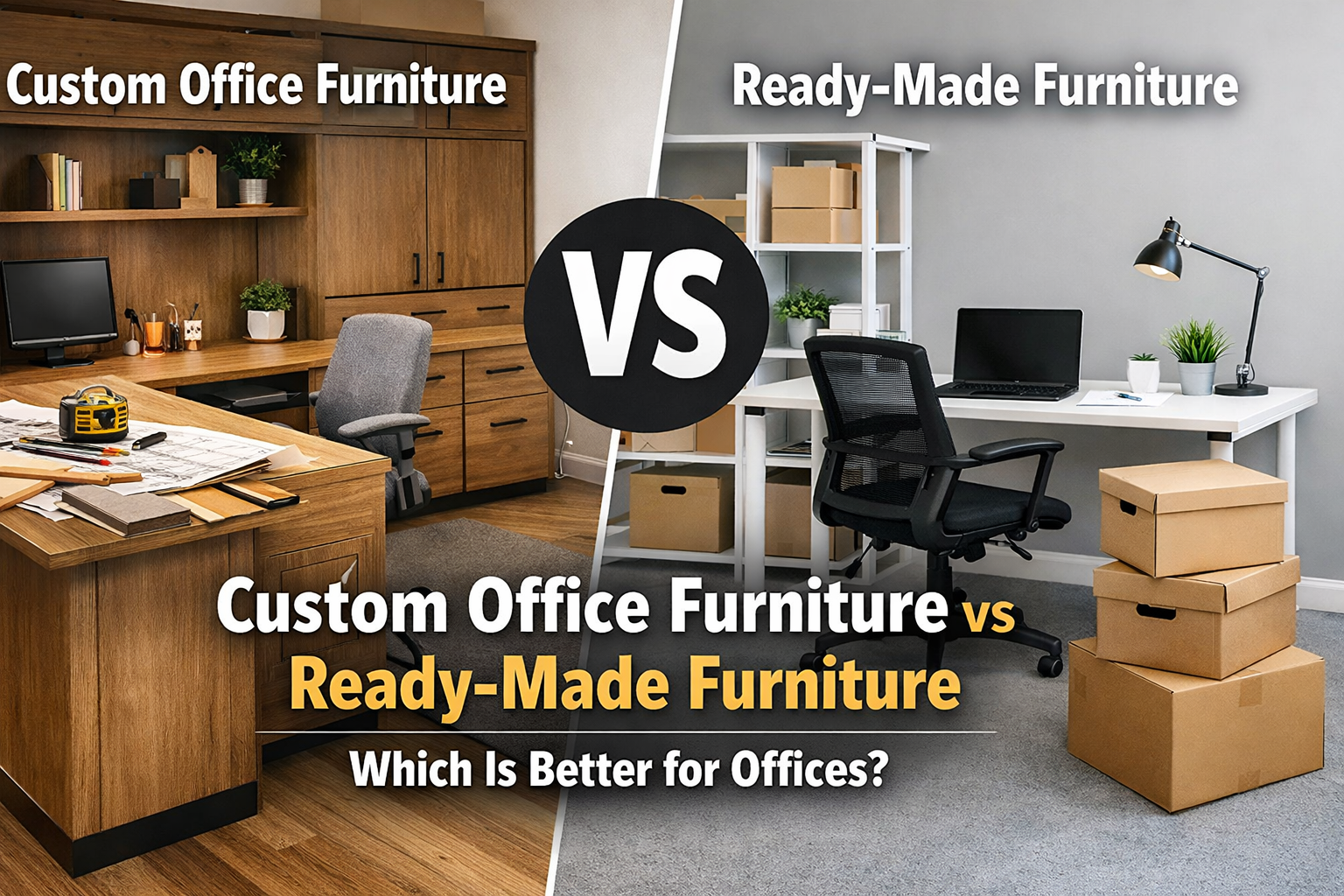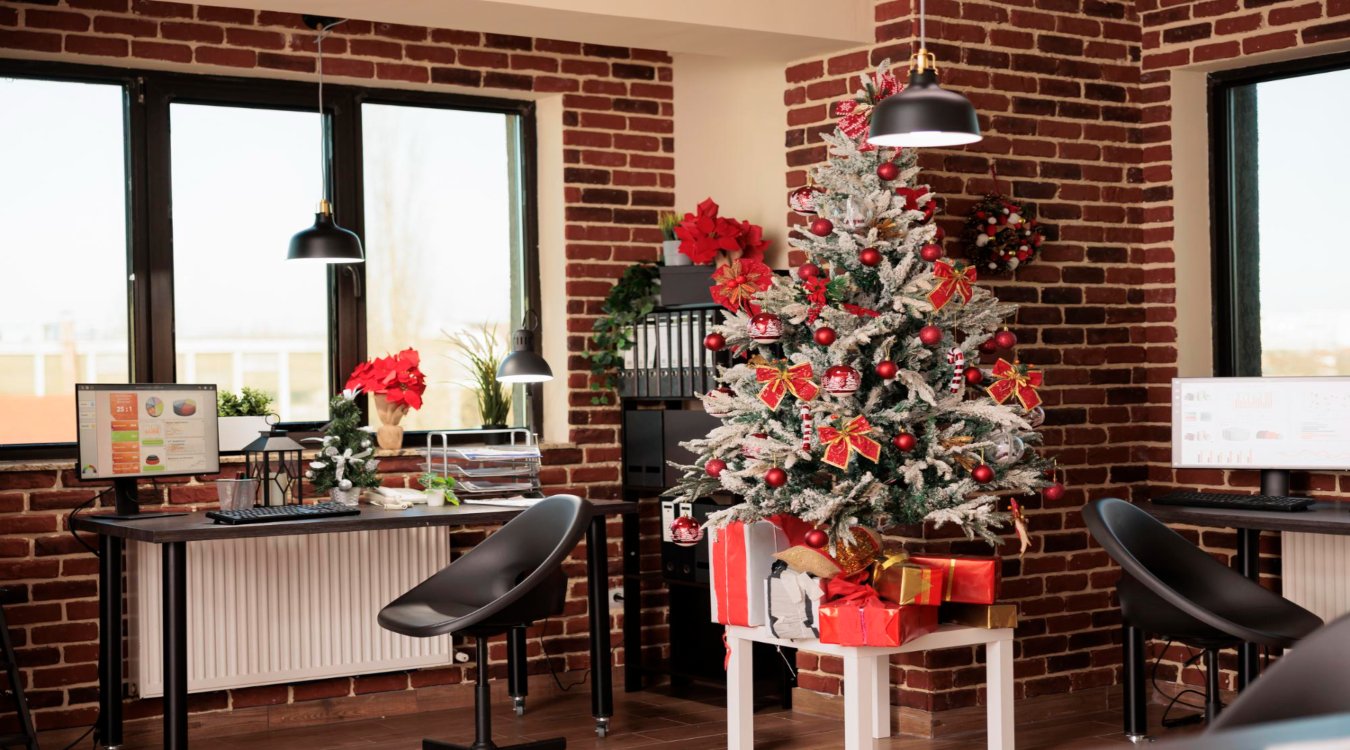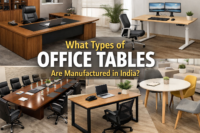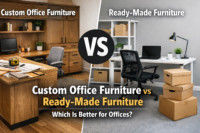Workplace design in India has evolved significantly over the last decade. From closed offices and bulky furniture to open, collaborative layouts with adaptable desks, the change is visible across IT parks, corporate houses, and co-working hubs. At the heart of this transformation lies one essential element: modular office workstations.
For companies, these workstations are more than just tables and chairs. They influence how employees interact, how efficiently space is used, and even how clients perceive the business. With numerous Modular Office Workstations Manufacturers in India and a growing list of office furniture suppliers, making the right choice can feel daunting.
To simplify the process, let’s explore the most important factors Indian companies should consider when choosing modular workstations.
1. Space Planning and Office Layout
The first and perhaps most important step is understanding your office’s physical space. Every organization has unique requirements, and the workstation layout must align with how employees actually work.
- Open Layouts: Startups and creative agencies often prefer open office benching systems. These involve long, continuous desks where employees sit together, promoting communication and team bonding. Open layouts maximize seating capacity, making them popular in high-rent cities like Bengaluru or Mumbai.
- Private Modular Cubicles: Larger organizations, especially in finance, IT services, or legal firms, may prefer cubicle setups. Modular cubicles in India provide employees with personal workspaces, ensuring privacy and reduced noise. They are ideal when confidentiality and focus are critical.
- Hybrid Designs: Increasingly, companies are blending open benching systems with private cubicles. This allows collaboration while still providing spaces where employees can work without interruptions.
Proper space planning with the help of experienced office furniture suppliers ensures that no square foot goes unused while maintaining comfort.
2. Ergonomics and Employee Comfort
A well-designed modular workstation must go beyond appearances. It should support employee health and productivity. Poorly designed desks and chairs lead to back pain, neck strain, and fatigue, which ultimately reduce efficiency.
Key ergonomic considerations include:
- Height-adjustable chairs with lumbar support.
- Desks with correct height and legroom to avoid awkward postures.
- Monitor placement that prevents eye strain.
- Adequate lighting integrated with workstation design.
For Indian companies dealing with long working hours—particularly IT and BPO sectors—ergonomics is not optional. Investing in ergonomically designed modular office workstations reduces absenteeism, improves employee well-being, and boosts overall productivity.
3. Scalability and Future Growth
Every growing business faces one challenge: space expansion. Modular furniture should be designed with scalability in mind.
- Expandable Modules: Workstations that can be easily extended or reconfigured help companies add more employees without major renovations.
- Movable Panels: Quick reconfiguration options allow businesses to adapt their layout for new departments or team structures.
- Standardized Sizes: Choosing suppliers who follow standard dimensions makes it easier to integrate additional units later.
In fast-growing industries like IT, startups, and co-working spaces, the ability to scale quickly without replacing existing furniture saves both time and money.
4. Aesthetics and Brand Identity
Workstations are not just functional—they are part of your brand identity. An office should reflect the company’s culture, values, and professionalism.
- Minimalistic Designs are popular among startups and creative firms that prefer clean, modern aesthetics.
- Premium Finishes like glass, veneer, or high-quality laminates suit corporates dealing with high-value clients.
- Color Customization offered by many Modular Office Workstations Manufacturers in India allows organizations to match furniture with company branding.
The right aesthetics influence not only employees’ sense of pride but also how clients perceive the business during visits.
5. Material Quality and Durability
Durability is crucial, especially in India where climatic conditions vary widely—from humid coastal cities like Chennai to dry regions like Rajasthan.
- High-density particle boards or engineered wood offer longevity compared to low-grade MDF.
- Scratch-resistant surfaces maintain the furniture’s appearance despite daily use.
- Powder-coated steel frames prevent rust, particularly in humid environments.
Investing in high-quality materials may increase the upfront cost but significantly reduces replacement and repair expenses over time.
6. Storage Solutions
Even in digital workplaces, storage remains essential. Workstations that integrate storage reduce clutter and help maintain a professional look.
- Integrated pedestals beneath desks keep important files close.
- Lockable drawers provide security for confidential documents.
- Overhead cabinets save floor space in smaller offices.
For Indian companies managing hybrid teams, modular cubicles with smart storage help employees transition between shared and personal workspaces easily.
7. Technology Integration
Today’s workstations must be designed for tech-heavy office environments. From IT firms to marketing agencies, every employee relies on multiple devices daily.
- Cable management systems keep wires organized and prevent hazards.
- Built-in charging ports and sockets make it easier for employees to power laptops and phones without clutter.
- Provisions for data and networking cables ensure smooth connectivity.
For companies adopting digital transformation, choosing modular office workstations with integrated tech features ensures that the furniture supports rather than hinders productivity.
8. Cost vs. Long-Term Value
Price is often a deciding factor, but focusing only on upfront costs can be misleading. Companies should consider total cost of ownership.
- Cost-cutting options may look economical early on, but their short lifespan leads to greater expenses later.
- Warranty and after-sales support play a big role in reducing future repair costs.
- Bulk purchase discounts offered by reliable office furniture suppliers can help balance cost with quality.
The ideal choice is not the cheapest but the one that provides durability, employee comfort, and flexibility within a reasonable budget.
9. Compliance and Safety Standards
Workstations must meet health and safety standards. Ignoring this aspect can result in penalties and risks to employee well-being.
- Fire-resistant surfaces are crucial in corporate buildings.
- Non-toxic finishes and adhesives prevent health hazards.
- Eco-friendly and sustainable materials align with global corporate responsibility initiatives.
As Indian companies adopt Environmental, Social, and Governance (ESG) practices, eco-friendly furniture choices are no longer optional but increasingly expected.
10. Vendor Reliability and After-Sales Support
Even the best modular workstation design will fail without the right supplier. Partnering with a reliable Modular Office Workstations Manufacturer in India ensures smooth execution.
- Reputation and reviews provide insights into past client satisfaction.
- Portfolio and project experience reveal whether the supplier has handled similar projects.
- After-sales service ensures timely assistance with repairs, replacements, or reconfigurations.
A trustworthy supplier not only delivers quality furniture but also supports long-term office management needs.
11. Types of Modular Workstations to Choose From
Depending on the company’s requirements, different workstation designs are available:
- Office Benching Systems in India: Best suited for startups and collaborative teams. They save space and encourage communication.
- Modular Cubicles in India: Provide privacy and reduce distractions, making them ideal for corporates, call centers, and research environments.
- Hybrid Workstations: Combine open seating and private cubicles for a balanced approach.
- Customized Desks: Tailored solutions that meet unique spatial and branding requirements.
Choosing the right type depends on the nature of work, company culture, and available space.
12. Emerging Trends in Modular Workstations in India
The Indian office furniture market is witnessing several new trends:
- Height-adjustable desks that support both sitting and standing work.
- Collaborative zones integrated with modular setups for brainstorming sessions.
- Eco-friendly materials such as bamboo, recycled boards, and low-VOC finishes.
- Smart desks with wireless charging and sensors that monitor usage and comfort.
Adopting these trends ensures workplaces stay modern and competitive.
13. A Step-By-Step Guide for Companies
For businesses planning to invest in modular furniture, the process can be broken down into these steps:
- Assess your needs – Number of employees, space availability, and work culture.
- Set a budget – Consider both upfront cost and long-term ROI.
- Research office furniture suppliers – Look for manufacturers with proven experience.
- Request layout planning – 2D or 3D models give a clear visualization.
- Check material samples – Ensure durability and quality before finalizing.
- Negotiate deals – Bulk orders often attract discounts.
- Plan installation carefully – Ensure minimal disruption to ongoing operations.
- Prioritize after-sales service – Choose suppliers who can support maintenance and future reconfiguration.
Conclusion
Selecting the right modular workstation is a strategic decision for Indian companies. It impacts space efficiency, employee comfort, scalability, brand identity, and overall productivity. By carefully considering factors like ergonomics, material quality, storage, technology integration, and vendor reliability, organizations can make informed decisions that benefit them in the long run.
Whether you are exploring office benching systems in India for a startup or investing in modular cubicles in India for a corporate setup, partnering with experienced Modular Office Workstations Manufacturers in India and trusted office furniture suppliers ensures your investment translates into a productive, modern, and future-ready workplace.
Frequently Asked Questions (FAQs)
Q1. Why should Indian companies choose modular office workstations over traditional furniture?
Modular office workstations are flexible, scalable, and cost-effective compared to fixed furniture. They allow easy reconfiguration as teams expand, making them the preferred choice offered by leading Modular Office Workstations Manufacturers in India.
Q2. What is the difference between office benching and modular cubicles in India?
- Office benching in India: Open seating systems designed to encourage collaboration and maximize space efficiency.
- Modular cubicles in India: Private workstations that provide noise reduction, confidentiality, and individual storage.
The choice depends on whether your company prioritizes teamwork or privacy.
Q3. How can office furniture suppliers help with space planning?
By providing 2D and 3D office layouts, reliable office furniture suppliers help businesses achieve smart, efficient space planning. They also recommend whether your office should opt for benching systems, modular cubicles, or a hybrid layout.
Q4. Are modular workstations customizable for branding?
Yes. Many Modular Office Workstations Manufacturers in India offer customization options such as color schemes, finishes, and even integration of company logos. This ensures that the furniture reflects your brand identity while maintaining functionality.
Q5. What is the lifespan of modular cubicles in India?
High-quality modular cubicles in India made with durable boards, powder-coated frames, and scratch-resistant finishes can last 8–12 years, depending on usage and maintenance.
Q6. Do modular office workstations support technology integration?
Yes. Modern designs from reputed office furniture suppliers include features like cable management, built-in charging ports, networking provisions, and even wireless charging options to support tech-heavy workplaces.
Q7. How cost-effective are modular workstations for Indian companies?
Despite a slightly higher initial outlay than traditional options, modular office workstations reduce long-term costs by supporting scalability, minimizing renovations, and offering extended durability. Partnering with a reliable Modular Office Workstations Manufacturer India ensures the best value for money.
Q8. Can office benching in India be adapted for hybrid work models?
Yes. Modern office benching in India is designed for flexible seating, making it ideal for companies with hybrid teams. These setups support hot-desking while still maintaining team collaboration.
Q9. How do I choose the right office furniture supplier in India?
Look for office furniture suppliers with a proven track record, positive client reviews, quality certifications, and strong after-sales support. Reliable suppliers will also provide installation and maintenance services.
Q10. What trends are shaping modular office workstations in India?
Trends include height-adjustable desks, eco-friendly materials, collaborative zones, and smart tech-integrated designs. Both office benching India and modular cubicles India are evolving to meet modern workplace needs.


